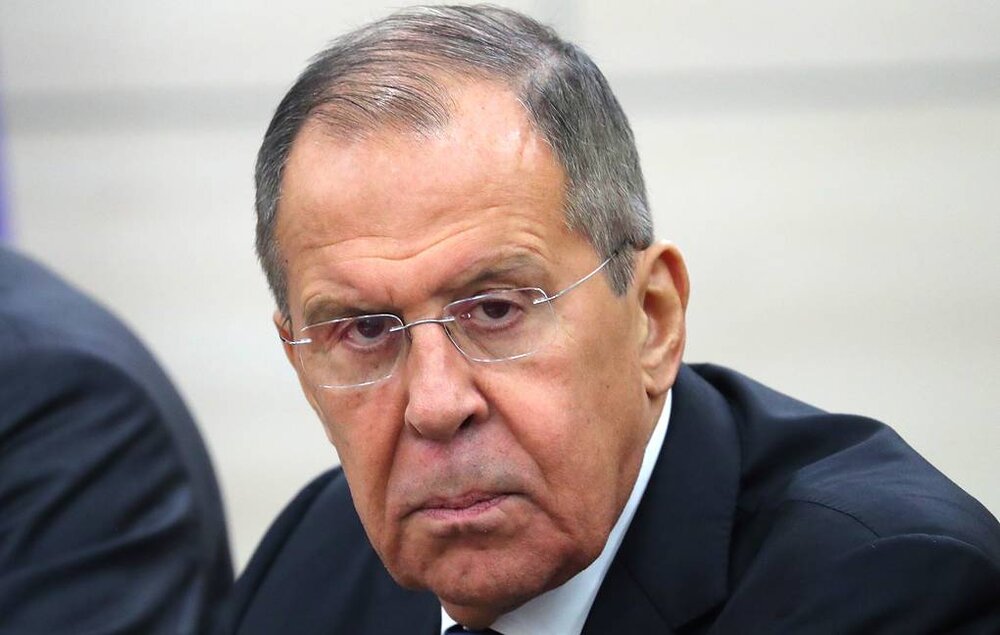Russia, China reject U.S. unilateral actions aimed at kill nuclear deal: Lavrov

TEHRAN - Russian Foreign Minister Sergey Lavrov said on Friday that Russia and China reject the United States’ unilateral actions aimed at collapse of the 2015 nuclear deal, known as the JCPOA.
“Today we discussed the situation around the joint comprehensive action plan to resolve [the situation around] the Iranian nuclear program. And of course we, Russia and China, as well as the overwhelming majority of UN Security Council members, reject American attempts to dismantle this most important international agreement for the world, which was approved by UN Security Council Resolution 2231,” TASS quoted Lavrov as saying at a joint press conference following a meeting with Chinese Foreign Minister Wang Yi.
The Russian foreign minister stressed that both countries do not tolerate the illegitimate unilateral actions of the United States in connection with the situation around Iran’s nuclear program.
In 2015, Iran signed the JCPOA with China, France, Germany, Russia, the United Kingdom, the United States, Germany and the European Union. It required Iran to scale back its nuclear program and severely downgrade its uranium reserves in exchange for sanctions relief, including lifting the arms embargo five years after the deal’s adoption. In 2018, the United States abandoned its conciliatory stance on Iran, withdrawing from the JCPOA and implementing hardline policies against Tehran.
Nearly a week after the UN Security Council rejected a U.S. draft resolution to extend arms embargo against Iran in violation of Resolution 2231, U.S. Secretary of State Mike Pompeo announced on August 20 that all UN sanctions against Iran will be reinstated on September 20 after the U.S. “activated the snapback mechanism”.
However, the move was strongly denounced by other signatories of the nuclear deal including Iran, E3 (the European trio of Germany, France and Britain) as well as the EU, Russia, China, and non-permanent members of the UN Security Council.
The U.S., which was left isolated at the UN Security Council when it said it wished to reimpose snapback sanctions, rejected the E3 position as crackers and pandering to what he called “terrorists”.
The European nations argue that the U.S. was no longer a participant in the deal and so unable to act unilaterally.
Niger, the president of the UN Security Council for September, has reaffirmed a rejection of a U.S. complaint against Iran at the Security Council.
On Thursday, Britain, Germany and France rejected the United States’ attempt to trigger snapback mechanism.
The German Foreign Ministry said in a tweet on Thursday that the European countries remain committed to preserving the nuclear deal, “but Iran urgently needs to return to full compliance.”
The tweet came following a meeting of German Foreign Minister Heiko Maas with his UK and French counterparts, Dominic Raab and Jean-Yves Le Drian. Foreign Secretary Raab hosted the meeting.
According to the German Foreign Ministry, the three top diplomats met to coordinate joint steps for preserving the JCPOA. EU High Representative/Vice-President Josep Borrell also took part in the talks via a video linkup, according to TASS.
Chinese Mission to the UN said in a tweet on September 2 that the United States cannot initiate process of reinstating UN sanctions on Iran.
“A fruitful meeting of #JCPOA Joint Commission at a critical juncture. All participants reaffirmed the importance of preserving the agreement and its full implementation. It is the common belief that US cannot initiate the process of reinstating UN sanctions under #UNSCR2231,” said the tweet.
The participants to the Joint Commission of the JCPOA met in Vienna on September 1.
Mikhail Ulyanov, Russia’s permanent representative to the Vienna-based international organizations, has said that the United States has no chance to trigger the snapback mechanism.
NA/PA
Leave a Comment